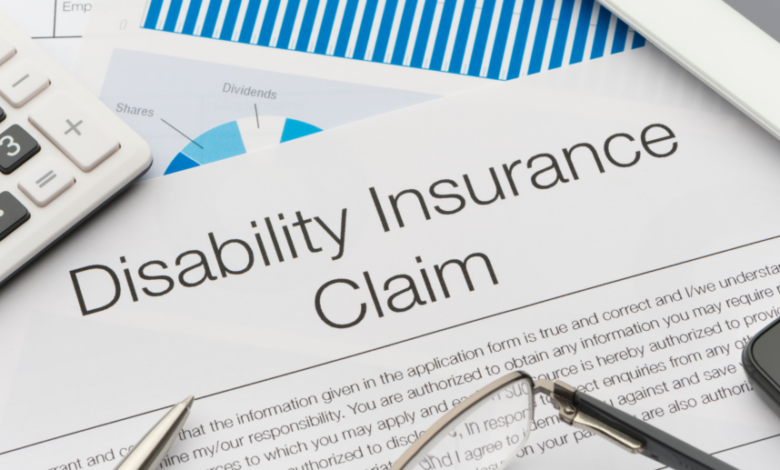Can You Flip Houses While on Disability? (Investors Beware)

Disability benefits provide important lifelines to those who are unable to work due to various medical conditions. Although your ability to work while on disability will be limited, you may still be able to earn income from certain passive investments. Whether flipping houses while on disability will affect your benefits depends on your degree of involvement in your properties.
So, Can You Flip Houses While on Disability?
If you are actively involved in the buying and selling of properties for profit (flipping houses), you may be deemed an active participant in your investments by Social Security, and you will be at risk of losing your disability benefits. Because of this, flipping houses while on disability may not be possible.
To be successful at flipping houses, you have to carefully research potential homes, visit them to inspect their condition, evaluate their profit potential, and be involved in the selling of the property. Even if you hire a contractor to take care of any required rehab projects, your involvement in the investments may be considered work, which could jeopardize your benefits.
A possible exception is if you have a partner who does all the work. If your only involvement in a house flip is contributing money for the investment, it may be deemed passive. Because laws pertaining to disability are complex, it’s important to seek the advice of a disability attorney before investing in house flipping to make sure you can continue receiving your benefits. Have a mentor for real estate investing? Get advice from him/her as well.
How Does Disability Work?
Social Security Disability Insurance (SSDI) is a financial benefit for people who are unable to work due to medical conditions that prevent them from engaging in certain activities. The medical condition must be something that will last at least a year, but it may also result in the beneficiary’s death.
SSDI is funded through payroll taxes. If you are approved for SSDI benefits, you will receive them until you either return to work or you reach the age that you will qualify for full Social Security retirement benefits.
When applying for disability, the Social Security Administration (SSA) will consider your medical condition, how long you have had it, the medical tests and treatments you’ve had, and how the disability affects your ability to work. Being approved for disability can be challenging, since only 38% of applicants are initially approved. However, 53% of those who appeal their rejections are approved.
Many people are denied each year because they don’t meet the requirements. To qualify for SSDI, you have to pass two earnings tests—a recent work test and a duration of work test.
- Recent work test: This test demonstrates that you worked a certain amount before you became disabled in the previous three to 10 years. The length of time that is considered is based on your age.
- Duration of work test: To qualify for SSDI benefits, you must have acquired a certain number of work credits throughout your work history, which is confirmed by the duration test. The total number of work credits you will need will vary depending on your age.
Work may be allowed if you are receiving Social Security disability benefits, if you are trying to return to work to end your benefits. A trial work period of up to nine months may be allowed to see if you are able to work again.
The nine-month trial period doesn’t necessarily have to be nine months in a row, and the amount you can earn will be limited. You will continue to receive your full benefits while working during the trial period.
Earned and Passive Income
Whether income is received passively or earned through work is one of the most important factors that will determine whether it will affect your disability benefits.
Earned income involves any income from working. It could be income you earned working as an employee or income from being self-employed.
Examples of earned income include:
- Salaries and wages
- Tips
- Bonuses
- Commissions
- Overtime pay
- Independent contractor work
- Business profits
- Farm income
Passive income involves any income you receive that does not involve work. Many people have both earned and passive income.
Examples of passive income include:
- Pensions
- Dividends
- Interest
- Royalties
There may be cases where some degree of interpretation is necessary to determine whether work is earned or passive. Some people invest in businesses, for example, but are not active in their operation. Because they are not directly involved, the money earned from these businesses is considered passive.
If you have an income source that is open to interpretation, it may be investigated to determine whether it is earned or passive. This means it’s important to keep all contracts, agreements, and other documents and correspondence to prove how it was obtained.
Final Thoughts
Flipping houses while on disability can be tricky if you are actively involved in your investments—it’s a gray area. That’s why it’s important to consult with a disability attorney if you are considering investing in real estate while receiving benefits. It’s something you don’t want to take any chances on. If flipping houses doesn’t work out, passive real estate opportunities—like real estate syndications or REITs—may be another way you can be involved in real estate investing. These opportunities offer many of the benefits of traditional real estate investing without requiring you to be an active participant.
Your one-stop guide to making a profit with fix-and-flips
A step-by-step plan to succeed in your first or next house flip, this bundle will teach you how to budget and estimate every aspect of your renovation, from cosmetic renovations to complex installations and upgrades. Discover the ins and outs of flipping real estate in any part of the economic cycle, find options for financing your flips, and undertake larger renovation projects.
Note By BiggerPockets: These are opinions written by the author and do not necessarily represent the opinions of BiggerPockets.
Source link



